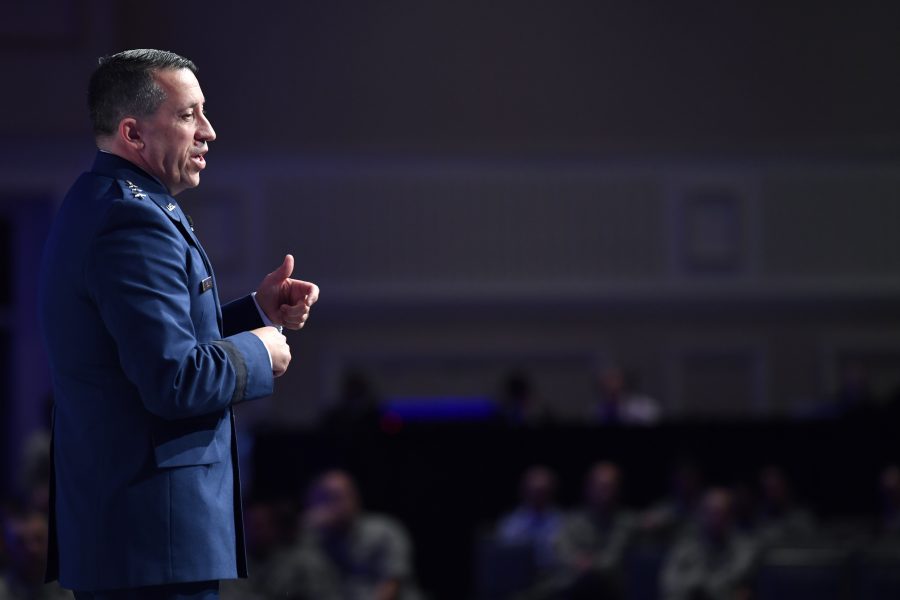The Air Force’s Diversity and Inclusion Task Force, which launched June 9 to investigate the impact of demographic-related disparities on USAF and the Space Force, will transition into a new office dedicated to cultivating these qualities across both services, Air Force Deputy Chief of Staff for Manpower, Personnel, and Services Lt. Gen. Brain T. Kelly announced Sept. 16.
“This task force that’s created now will transition to a new Office of Diversity, Inclusion and Belonging that will work directly for the Secretary of the Air Force [and] service the two service chiefs—both on the Air Force side and the Space Force side,” Kelly said during a panel on Air Force talent management and culture issues that was held as part of the Air Force Association’s virtual Air, Space & Cyber Conference.
The Air Force is also bringing in experts from the corporate and academic worlds who possess “really detailed experience and track records in this area” to help steer the effort, he added.
Kelly suggested that moving the Department of the Air Force organization that manages these efforts out of the A1 portfolio may help win “more corporate buy-in and resources” for these endeavors.
Kelly didn’t provide a timeline for this transition.
The parallel Pentagon-level effort—the Defense Department Board on Diversity and Inclusion, which is helmed by Air Force Secretary Barbara M. Barrett and first convened on July 15—is also slated to transition into a permanent Defense Advisory Committee on Diversity and Inclusion this December, Kelly noted.
“They have been sorting through a number of different diversity tasks and suggestions and things coming from the services, with an eye towards what are those things that are unique for DOD to do that apply to every one of the services that only are uniquely done at the DOD level that really would take root and take hold there,” he said of the board.
Kelly said he sees these Air Force and Pentagon plans, as well as recent inclusion-minded USAF personnel policy changes—such as Air Force Surgeon General Lt. Gen. Dorothy A. Hogg’s authorization of five-year shaving waivers, the allowance of diacritical accents on nametapes, and the creation of new Air Force scholarships for students attending historically Black colleges and universities—as signals that the service will keep diversity and inclusion efforts front and center from here on out, since previous endeavors on these fronts might not have been “as … central to the culture as we wanted them to be.”
He noted that George Floyd’s Memorial Day death in police custody and the ensuing civil unrest across the county “rightly shined” focus and attention on these issues for the Air Force.
“All those things tell me we’re on a good path to … making permanent changes to culture and not and not just sort of repeating cycles from the past,” Kelly said.
